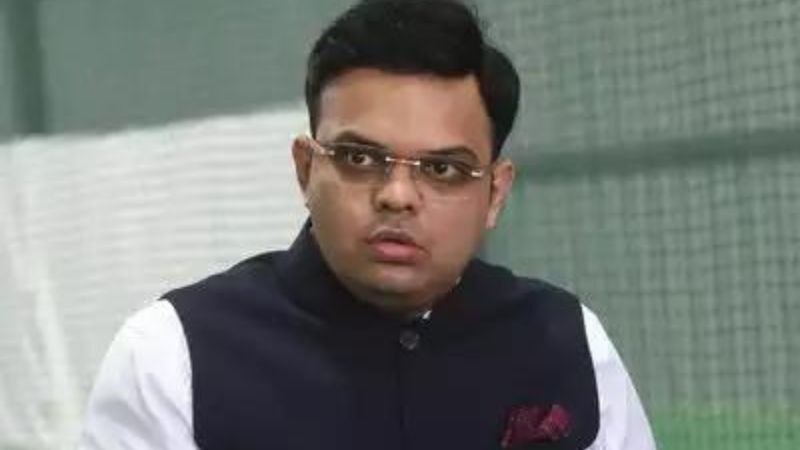The Board of Control for Cricket in India (BCCI), one of the most influential bodies in world cricket, has been the centre of attention for both cricket enthusiasts and critics alike due to its recent history marked by controversies and significant changes. A key figure in this narrative is BCCI Secretary Jay Shah, who has been at the helm during a period of unprecedented shifts and challenges.
Controversies and Unresolved Issues
In 2021, during the leadership of Sourav Ganguly and Jay Shah, the Indian Premier League (IPL) faced a major setback when the COVID-19 pandemic breached its bio-bubble. This led to the suspension of the tournament, forcing both the remainder of the IPL and the 2021 T20 World Cup to be relocated to the United Arab Emirates. The delayed announcement of compensation for domestic players after the cancellation of the 2020-21 domestic season further fueled concerns.
The Indian women’s cricket team faced its share of troubles, with the head coach position remaining vacant for over eight months in a year. In addition, despite assurances during protests by Indian wrestlers, the BCCI has yet to establish a committee to address sexual harassment concerns.
The BCCI witnessed a flurry of changes in official kit sponsors, with three shifts in the past two years. The same trend applies to jersey sponsors, which changed three times in five years. Furthermore, the BCCI decided to reduce the base price in two significant deals, involving the Indian team’s official jersey and home title sponsorships.
The Shah Influence
Under Jay Shah’s leadership, the BCCI’s centralization of power has been noted. Shah primarily operates from his base in Ahmedabad instead of the BCCI’s Mumbai office. While he is known for taking input from various stakeholders, there’s a perception that he ultimately makes decisions according to his preferences. Information is closely guarded, causing discontent and resentment among officials, who often feel uninformed about crucial decisions.
Many within the BCCI believe that Jay Shah’s influence is partially attributed to his father’s position. Critics argue that this dynamic has stifled dissent within the organization. It’s acknowledged that little can be expected to change in the next five years. Shah’s presence is marked by nervousness among employees, who resort to communicating via WhatsApp and avoid recording his media briefings on video.
BCCI’s Increasing Control Over ICC and Transparency Concerns
Efforts are underway to establish Jay Shah’s identity as an independent cricket administrator, emphasizing his support for women’s cricket and his passion for the sport. The BCCI’s influence over the International Cricket Council (ICC) has grown, particularly through its greater share of ICC revenues. This shift in balance, initiated by Shah’s predecessor, N. Srinivasan, aligns with England and Australia’s more profitable cricket boards.
Transparency has become an issue as the BCCI stopped uploading its balance sheets to its website in 2017. The annual reports for the years 2021-22 were distributed to state association members just before the annual general meeting in October 2022. This lack of transparency raises questions about financial accountability.
Venkatesh Prasad’s Perspective
Former cricketer Venkatesh Prasad weighed in on the matter, highlighting the potential repercussions of the actions of a single individual within an organization. He underscored the need for integrity and ethical conduct in sports and other fields, emphasizing the far-reaching impact of corruption and arrogance. Without taking any names, the legend slammed the BCCI secretary for not being transparent and affecting the BCCI’s business on a larger scale.
“It takes one corrupt, arrogant guy to take away the hardwork of an otherwise non-corrupt organisation and spoil the reputation of an entire organisation & the impact isn’t just micro but at a macro level. This is true in every field, be it politics, sports, journalism, corporate,” Prasad’s post on X (formerly Twitter) read.
However, he did clarify later that the post was not intended for any individual in general but was a generic statement that pertained to every field. “That was a general tweet where I spoke about how one person who is corrupt can undo a lot of good work of his organisation and it can have large-scale implications on a macro level as well in any field. Since I was also speaking about the inefficiency of the BCCI around tickets in other tweets, it led to confusion and looked out of context. Hence deleted,” Prasad wrote in response to a user’s tweet.
The BCCI’s recent history under Jay Shah’s leadership has been marked by both challenges and controversies. The organization’s increasing influence on international cricket and concerns about transparency have raised questions about the future direction of the Indian cricket administration. As cricket enthusiasts and stakeholders continue to watch, the BCCI faces the task of balancing its power and addressing the criticisms surrounding its decision-making processes.
Stay updated with all the cricketing action, follow Cricadium on Facebook, Twitter, and Instagram









